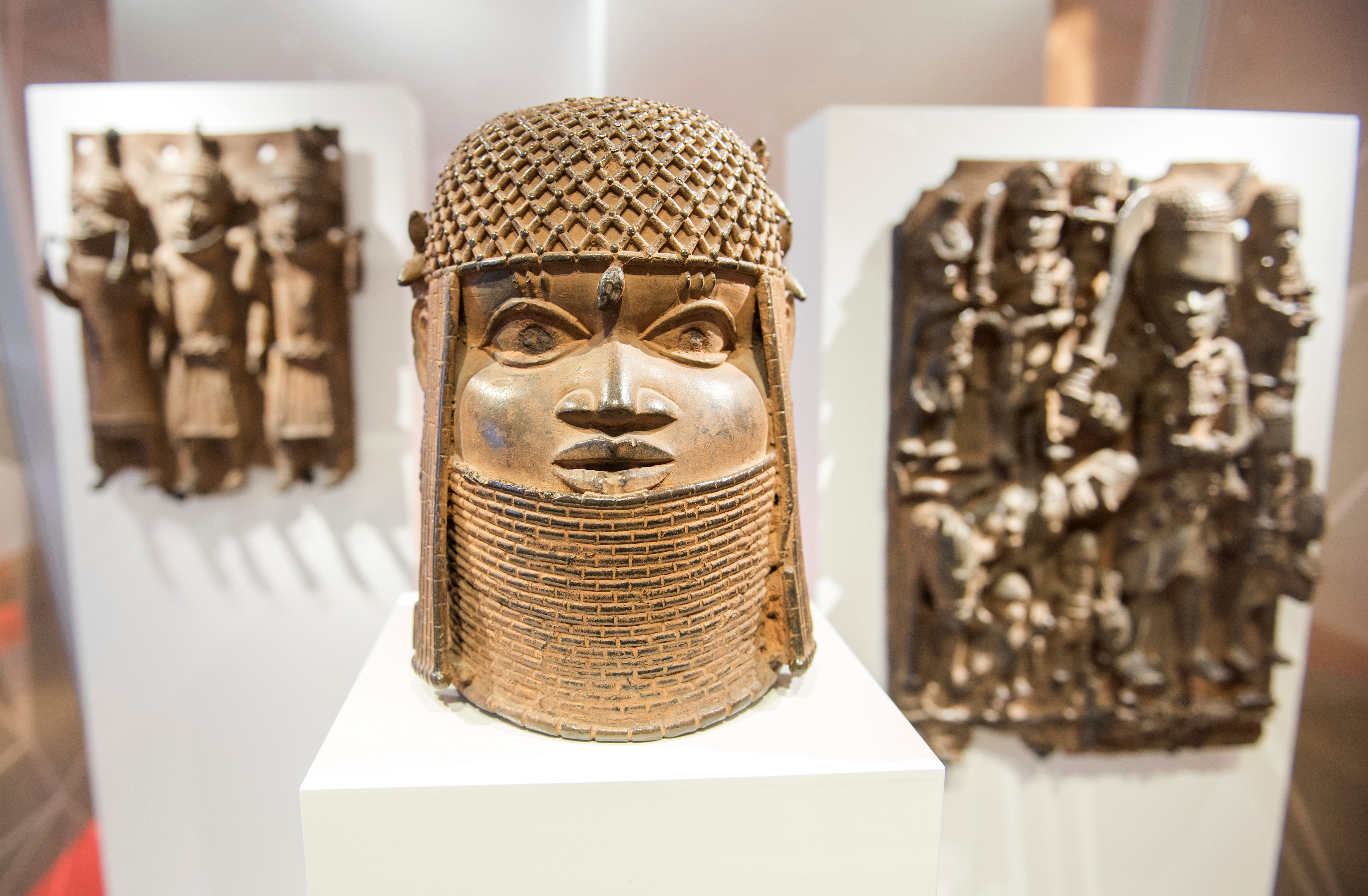Germany to return Benin Bronzes looted during colonial era
Germany is returning hundreds of artifacts known as Benin Bronzes that were mostly looted from western Africa by a British colonial expedition and subsequently sold to collections around the world, including German museums

Your support helps us to tell the story
From reproductive rights to climate change to Big Tech, The Independent is on the ground when the story is developing. Whether it's investigating the financials of Elon Musk's pro-Trump PAC or producing our latest documentary, 'The A Word', which shines a light on the American women fighting for reproductive rights, we know how important it is to parse out the facts from the messaging.
At such a critical moment in US history, we need reporters on the ground. Your donation allows us to keep sending journalists to speak to both sides of the story.
The Independent is trusted by Americans across the entire political spectrum. And unlike many other quality news outlets, we choose not to lock Americans out of our reporting and analysis with paywalls. We believe quality journalism should be available to everyone, paid for by those who can afford it.
Your support makes all the difference.Germany is returning hundreds of artifacts known as the Benin Bronzes that were mostly looted from West Africa by a British colonial expedition and subsequently sold to collections around the world, including German museums, authorities said Friday.
Foreign Minister Heiko Maas welcomed a deal reached with museums and authorities in Nigeria to work on a restitution plan for a substantial number of artifacts, calling it a “turning point in dealing with our colonial history.”
Germany’s minister for culture, Monika Gruetters, said the Benin Bronzes were a key test for the way the country deals with its colonial past.
“We are confronting our historic and moral responsibility,” she said.
Gruetters said the goal is to contribute to “understanding and reconciliation” with the descendants of those whose cultural treasures were stolen in colonial times. The first returns are planned for next year, she said.
A historian welcomed the plans, but said they don't go far enough.
“Sadly, there is neither a precise time plan nor an unconditional commitment to restitute all looted artifacts,” said Juergen Zimmerer, professor of global history at the University of Hamburg.
He also noted it's not yet clear how many objects will be returned, or whether there will be any recognition of the efforts by civil society groups that had called for the restitution.
A British colonial expedition looted vast numbers of treasures from the royal palace of the Kingdom of Benin in 1897, including numerous bas-reliefs and sculptures.
While hundreds of artifacts ended up in the British Museum, hundreds were also sold to other collections such as the Ethnological Museum in Berlin which has one of the world's largest collection of historical objects from the Kingdom of Benin, estimated to include about 530 items, including 440 bronzes.
The British Museum doesn't currently have plans to return parts of its collection.
“The devastation and plunder wreaked upon Benin City during the British military expedition in 1897 is fully acknowledged,” the British Museum said in a statement, adding that the circumstances around the acquisition of Benin objects is explained in gallery panels and on its website.
“We believe the strength of the British Museum collection resides in its breadth and depth, allowing millions of visitors an understanding of the cultures of the world and how they interconnect over time – whether through trade, migration, conquest or peaceful exchange,” it said.
But Zimmerer, who has done extensive historical research on the Benin Bronzes, said the decision by Germany would likely affect the wider debate about how institutions in former colonial countries should handle such artifacts.
“The pressure will grow, because the British position of simply not addressing the issue of restitution is no longer sustainable,” he said.
___
Jill Lawless in London contributed to the report.